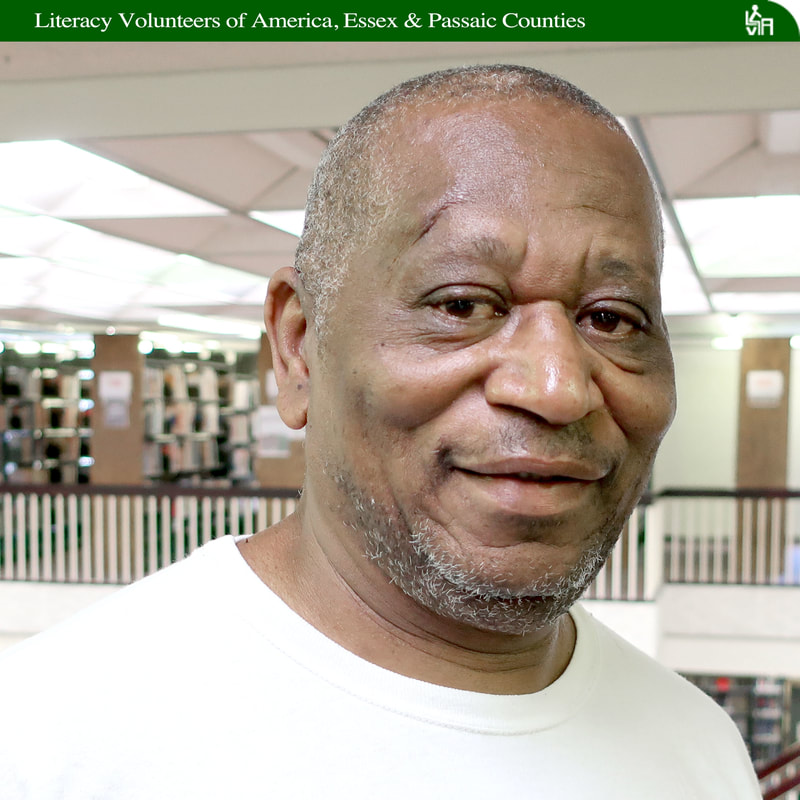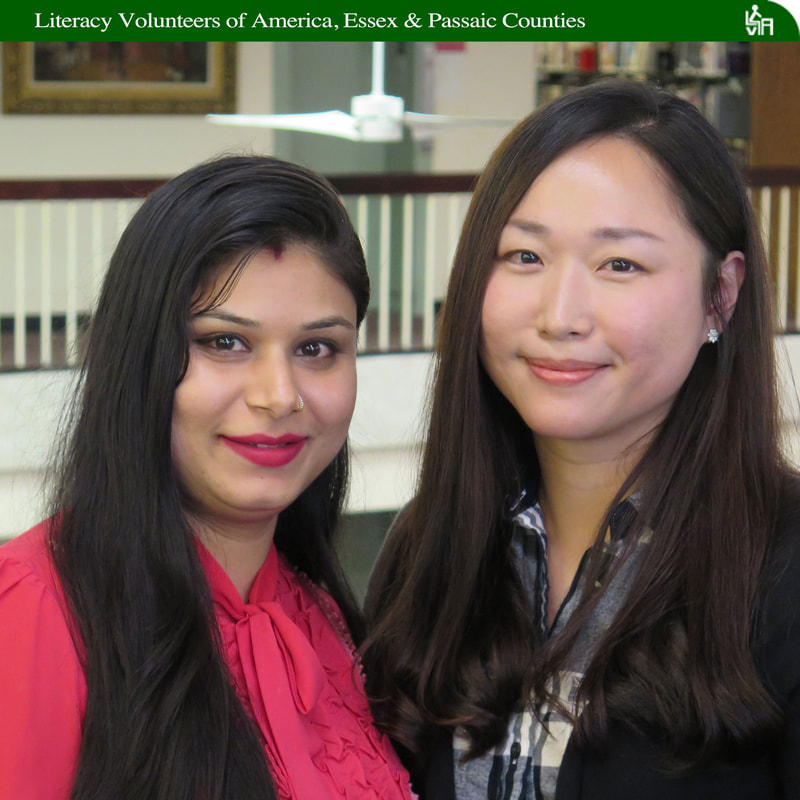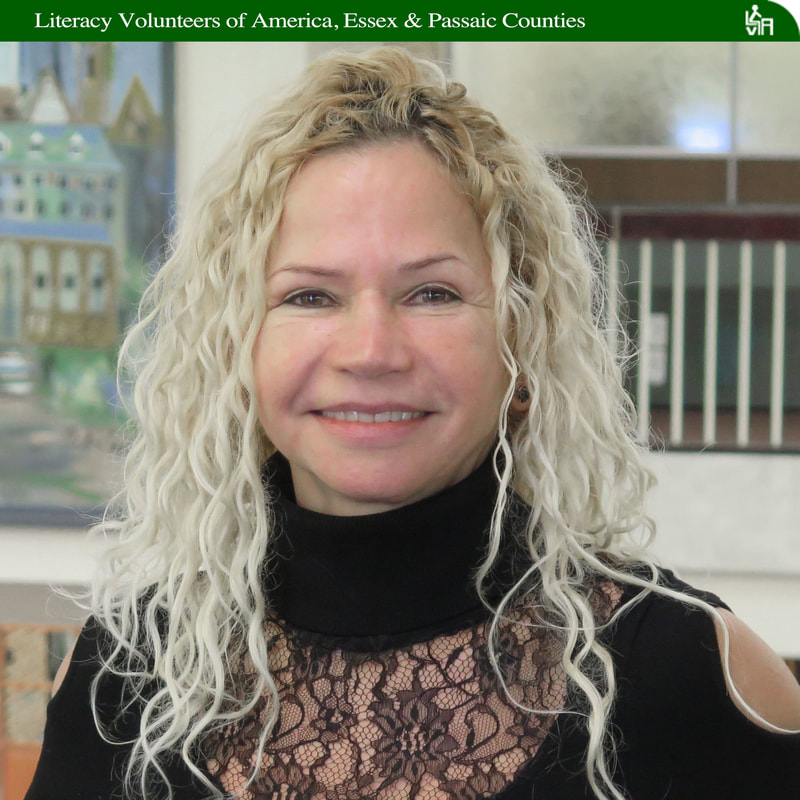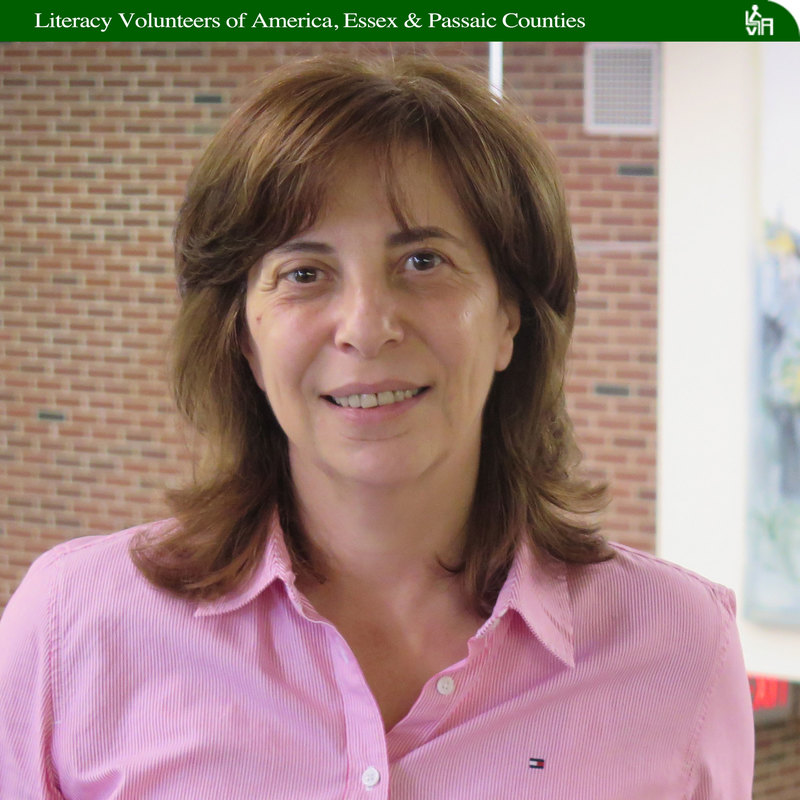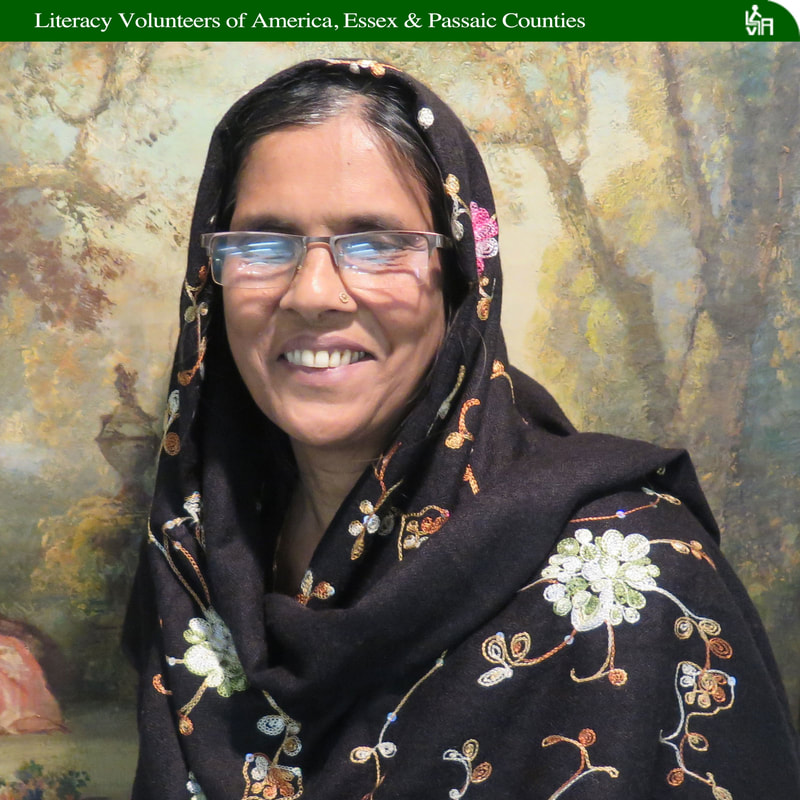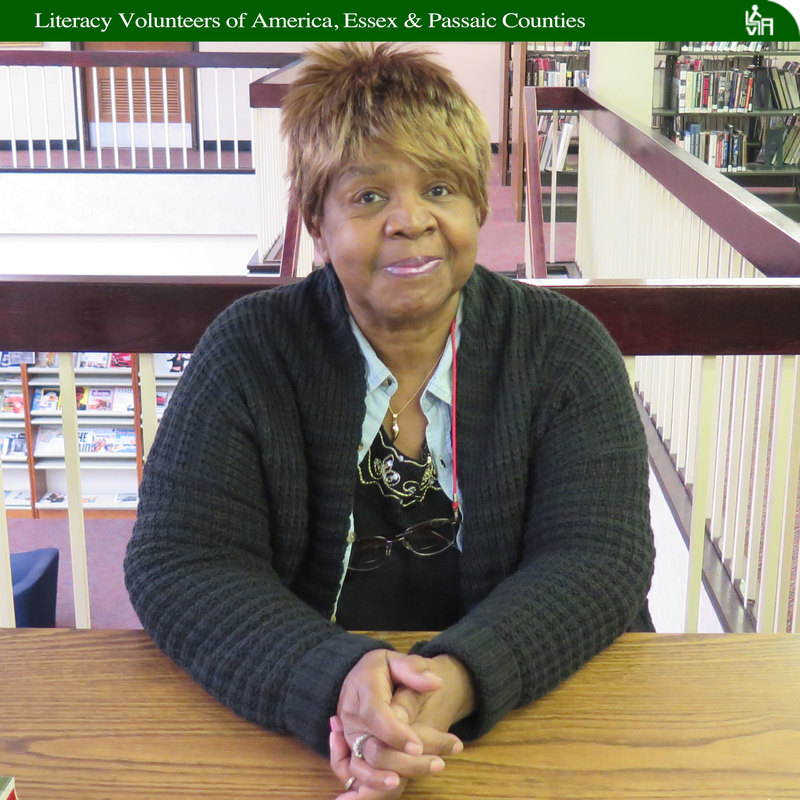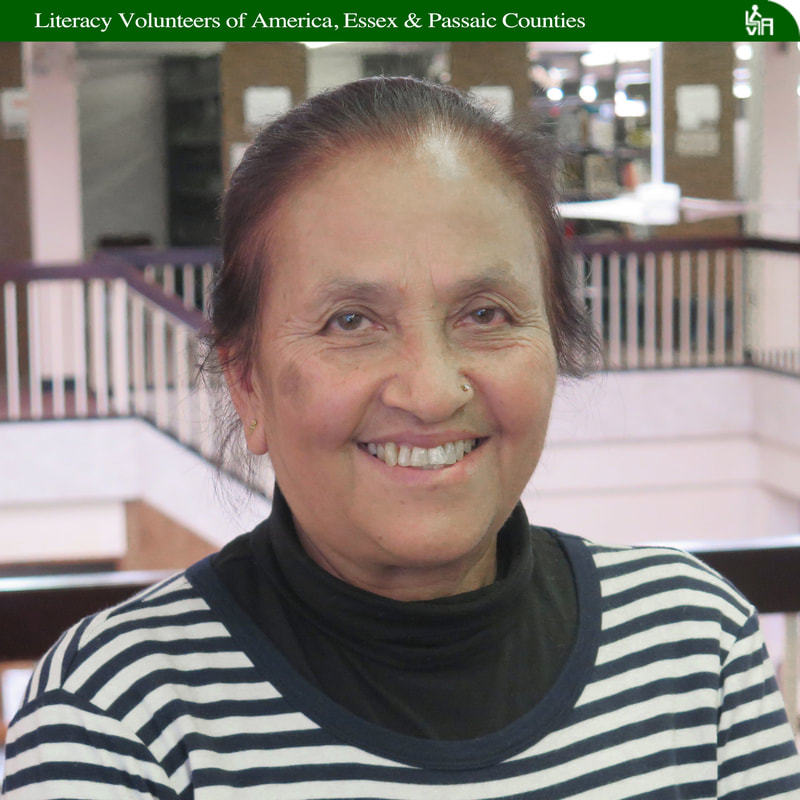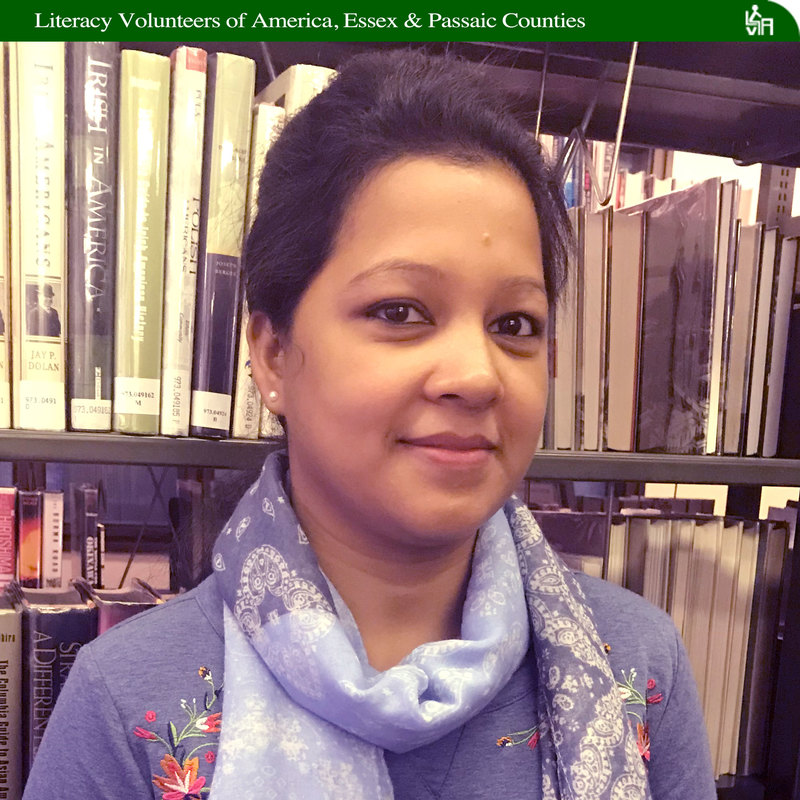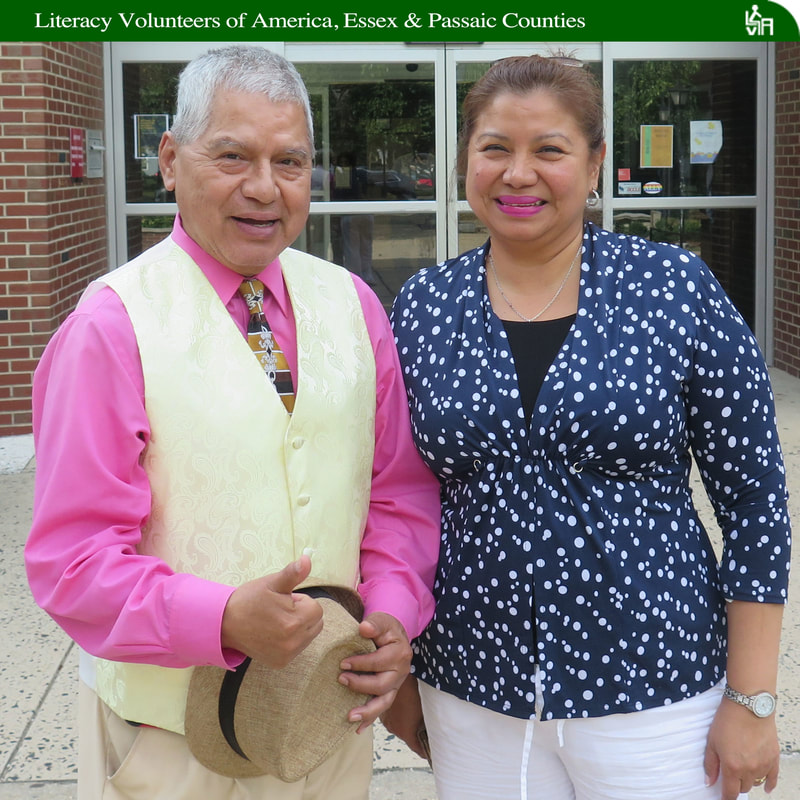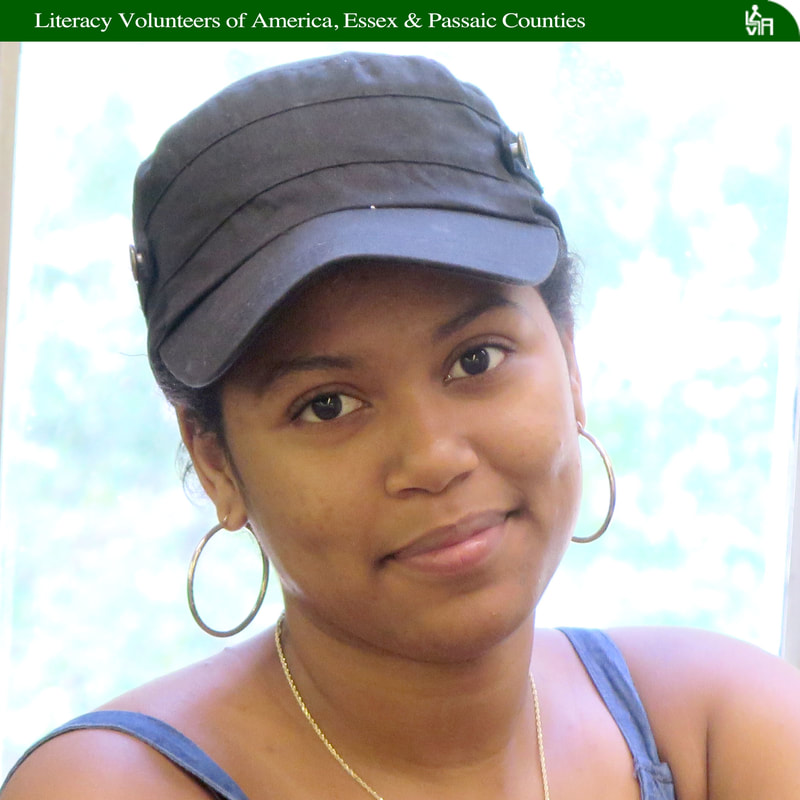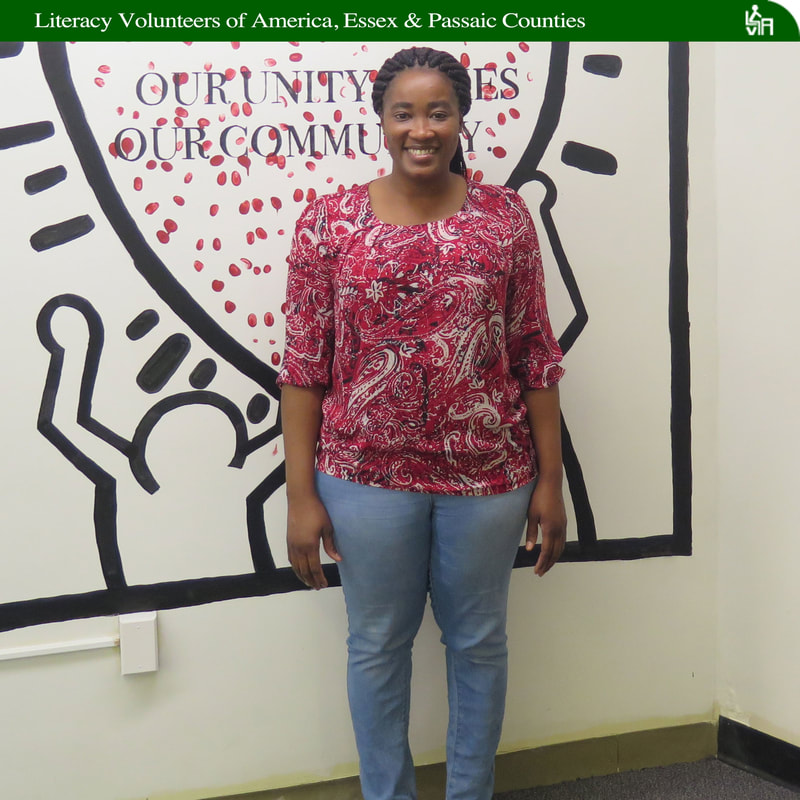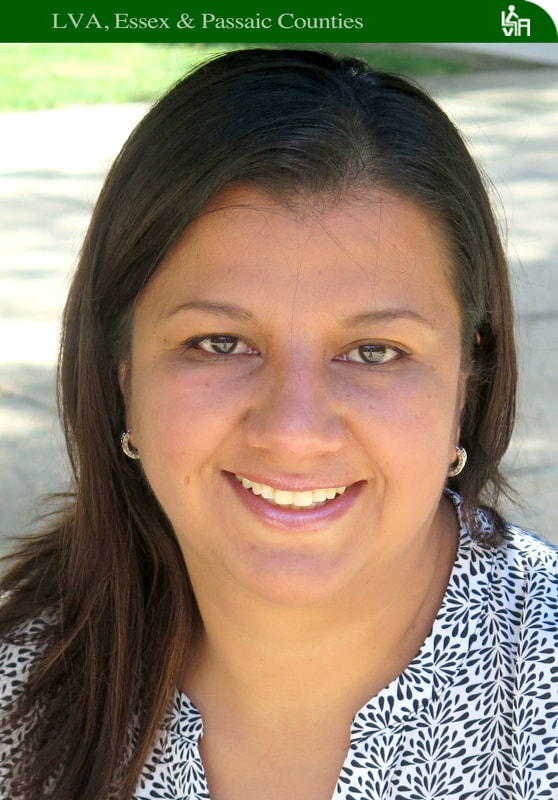Students' Success Stories 2017-18
We all enjoy success stories. They are positive messages about overcoming obstacles, working hard for the reward, and finding satisfaction in completing challenges. Read about the students who have obtained citizenship, those who escaped war torn countries and now have assimilated into American society and absorbed our culture, and those who finally read a bedtime story to a young child or grandchild. That last achievement has a special significance for a Basic Literacy student after a lifetime of frustration and low self-esteem. Here at Literacy Volunteers of America we like to celebrate all those positive events in our students’ lives. Sometimes we celebrate with hugs and treats, but most often, we share these achievements with others through this page on our website. That way all of our LVA community can share in the celebration of their success!
Carlton
|
Gurpreet & Seung Hui
|
Edilma
|
Susan
|
Rokeya
Rokeya Akter was a primary school teacher in Bangladesh for 35 years before moving to the United States. Now she is on the other side of the desk as a student with LVA where she is learning English.
It was a tough transition, but she now says she is comfortable and happy living in America. Still, she misses running into her former students who are now bankers, doctors and business people she taught in Bangladesh. “I would see my students in town and it made me very happy,” Rokeya said. “Now we connect on Facebook. ‘Madame, after many, many years we are very happy to see you.’” She began teaching in Sylhet, Bangladesh when she was 18 years-old and moved a couple hours away when she got married at 21. Her husband worked for The Bangladesh Tea Research Institute as an administrative officer and their home was set among the beautiful tea gardens there. The institute is responsible for solving various problems growing and manufacturing tea and represents the industry as a whole. Rokeya and her husband raised their three children before he retired in 2011 from the institute. Now part of the family lives in Bloomfield and one daughter and her family remain at the family home in Bangladesh. Rokeya stays close to her daughter and grand-daughter in Bangladesh by using her tablet for talking or Facetime every night at 8 p.m. Moving to the United States was very difficult for Rokeya. “When I came to this country I could not speak English and not understand English,” she said. “I did not feel good, there was darkness everywhere.” She initially began learning ESL with Sister Catherine and recalls her fondly. “She started to help me learning English, she was like my mother,” Rokeya said. Rokeya goes to the bank, shows and the library by herself. “Now I am not scared at all. I am very comfortable, now.” She has also made a good friend in another student, Sushila Khadka, from Nepal. They speak regularly on the phone and visit each other’s homes. “Now I am happy, I am not afraid,” Rokeya says with pride. “People help me with directions, everybody is good.” She initially began learning ESL with Sister Catherine and recalls her fondly. “She started to help me learning English, she was like my mother,” Rokeya said. Rokeya goes to the bank, shows and the library by herself. “Now I am not scared at all. I am very comfortable, now.” |
Shaga
|
Sushila
It’s not easy to hear the story of Sushila’s life in Nepal and remain unmoved.
There was the severe early childhood injury that left her hospitalized for years and living far from her mother and father; there was no opportunity to attend school until she was well into her teen years; and there was the wrangling with Nepal’s caste system and social class structure in order to overcome differences and hard feelings between her family and her future husband’s. But she never gave up. “I am strong in my life because I have always been a fighter,” said Sushila, an English for Speakers of Other Languages student in Essex County. “I am fighting in my disease, I am fighting in society, so I am strong. I wake up at 6 o’clock, make breakfast for my son and daughter and think it is going to be a good day.” She’s fearless - - unafraid to take risks or make mistakes, said Susan Craig who, along with Ellen Martin, comprise Sushila’s two tutors. “She is willing to get into an uncomfortable zone and struggle with it and she comes out with the ability to use and to understand English,” Susan said. In Nepal, Sushila’s family and her future husband’s family managed to work out their differences and the couple was married. They have a son and a daughter. In 2001, Sushila’s son won a green card through the Diversity Visa Lottery, a program designed to help residents of countries that are underrepresented in U.S. immigration to become permanent residents. He joined the U.S. Army and, during his second tour of duty in Iraq, sponsored Sushila for U.S. residence. Two years ago, while visiting a local children’s library with her grandchild, Sushila asked about English classes for adults; she was directed to our program and is an eager student. “My life is very changed,” Sushila said. “I understand so many words and I speak so many words. I am happy.” It’s not unusual to find her outside the Bloomfield Public Library most mornings, waiting for the building to open, and chatting up other library patrons in English. “She is always in conversation with someone,” said Susan. “She seems to attract people.” |
Sharmin
Sharmin moved to the United States less than a year ago, leaving behind a comfortable life in Bangladesh.
The youngest of 10 children, all professionals in their respective fields, Sharmin had just completed her master’s degree in history in the city of Hobiganj. Next she made a life changing decision. Sharmin married a man that lived in the United States and worked long hours as an accountant. Even though she lived in an urban area, Sharmin felt alone. “I have lived in New Jersey for 10 months,” she said. My husband has a busy job, and I am alone in the house. I feel very bad, so I want to do something. That is why I have to learn English.” Isolation is not uncommon among new immigrants. Many Literacy Volunteers of America students report that they are uncomfortable asking for directions, ordering in a restaurant, or shopping in a supermarket. This was Sharmin 10 months ago. Since she began working with her tutor, Robin, and also taking classes in one of the LVA satellite programs. Sharmin has gained tremendous self-confidence. She said, “When I go to a restaurant, it feels comfortable for me.” Conquering her fear of ordering a meal in English at a restaurant was the first of Sharmin’s triumphs. She now has a job as a cashier in a store. During her first few days as a trainee, Sharmin walked around the store and memorized the location of every item. Robin said of Sharmin’s learning style, “She is a sponge. She will learn something and use it immediately.” Robin and Sharmin have made great progress over the past five months. And, they’re not stopping here. Robin likes to work on conversation and life skills with Sharmin. “I want to work in areas that she will need in the world...things you might not learn in a textbook.” As for Sharmin, she plans to continue with her weekly tutoring sessions and daily classes. “My goal is to go back to school, get a better job, raise a family, and be able to communicate with my children’s teachers,” she said. This once lonely young woman, separated from her large, close family, is now on a mission. “You just have to be interested in something so your dreams can come true,” Sharmin said. Her tireless dedication to learning has Sharmin well on her way to living her dream. |
Julio
At age 73, Julio is the oldest student enrolled in our ESOL program. And probably the best dressed. Often seen at the Bloomfield Public Library, garbed in a button-down vest, tie, and his trademark small-brim Fedora hat, he is distinguished - - the picture of composure and tranquility.
But he wasn’t always so, at least not according to family lore, which depicts him as a something of a quick-tempered child who was protective of his family. One story his family likes to share took place when Julio was only nine years old. As he read a comic book at a store in his native Guayaquil, Ecuador, he saw a man trying to look up the dress of his older sister. Julio grabbed a broomstick, whacked the man hard across the knee and ran off, said his daughter, Marisol Ramirez, a worker in LVA’s Essex County office. The story doesn’t end there. The man, who turned out to be a plainclothes federal police officer, returned to the comic book store for a week, accompanied by several police friends, in search of an aggressive kid who left him with a limp. Julio managed to evade arrest, in part thanks to a large family that shielded him. Julio was one of 13 children. His mother, an entrepreneur who owned two stores in a major city market, now a historic site, was considered a business pioneer. With his family’s encouragement, Julio went on to study law and become a criminal attorney in Guayaquil, where he aggressively defended clients accused of robbery, forgery, drug trafficking, and other crimes. He took on other cases as well, including divorce cases, and he was the only attorney who managed to get rid of a squatter who stayed in a building for five years without paying rent. About three decades ago, Julio’s life completely changed when he began to study the Bible. Three years later, he became a Jehovah’s Witness. “When I started to read the Bible, the word got into my heart and my aggressive personality was changing day by day,” Julio explained. “I read the Bible every day. A year ago, he decided to study English, after more than two decades in the U.S. “I became an LVA student at 72 because, as a Jehovah Witness, we have to talk to people about the Bible,” he said. “The people I met on the street spoke English so it was important and necessary to be able to have a conversation with people.” Julio was recently named Essex County’s Student of the Year. He said he plans to continue his studies and sees age as no impediment to learning but a blessing. “I feel like I won the lottery,” he said. |
Arianny
William Shakespeare’s Sonnet 18 is laden with metaphors and personification in just 14 lines of text. sUnlocking its meaning is enough to give a novice literacy student a migraine, but Arianny sees only beauty in this poem, one of Shakespeare’s best known works.
And it doesn’t hurt to have a tutor who shares her love of literature. “Now I have somebody that can explain its deeper meaning to me,” Arianny, an LVA student, said of her tutor, David Baumbach, and the sonnet. In only a year of study, “Ari,’ as she is known by friends and family, has advanced several stages, progressing from the level of an ESOL student to that of a basic literacy learner. David and Ari work on standard educational materials that review vocabulary, grammar, and pronunciation, but David has also added materials that he believes have “an intellectual bent.” They include “A Small, Good Thing” a short story by Raymond Carver, as well as Sonnet 18. On a recent weekday, Ari sat down with us at the Bloomfield Public Library, and spoke about her hometown of Sosua, a small beachfront city and tourist haven on the north coast of the Dominican Republic, and her new life in New Jersey. “I think Sosua beaches are the best,” said Ari, flashing a brilliant smile as she described her hometown. “It is warm, has beautiful trees, and there is always a breeze. I love to stroll along the shore. I think the special connection that I have with the beach is that it was close by and we could grow there.” She was also something of a star gazer at home, she acknowledged, taking time to appreciate the stars in the sky during nightly walks home from a technical college, where she studied psychology. “Here in New Jersey it is difficult because the sky doesn’t get that dark,” Ari noted. When she’s not studying hard, you might find Ari in her own yard, celebrating summer with family and friends. “We play music like bachata, merengue and reggaeton,” she said. “We dance in the backyard and dancing spills out into the living room also. Everybody likes to dance and have fun.” |
Esther
Esther’s story reads like something out of a modern day fairy tale – a youth spent in extremely hard labor until a kindly grandmother came to her rescue.
Raised in Ghana by a distant relative, Esther had to wash the family’s clothes, walk over a mile each way to fetch water, and carry a basket of food on her head after daily trips to the marketplace. Every other day, she walked across very active train tracks surrounded by thick bushes to haul charcoal. “You walk 20 or 30 minutes before you see the village,” Esther remembered. “When you see the village, you know you are getting close to where you get the charcoal.” A dangerous journey for a 9-year old girl, Esther said, “When I think about it, God protected me.” The work left no time for her to attend school. Some nights, Esther was just too tired to finish her chores; she was denied food because of her “disobedience.” Compassionate neighbors sneaked her something to eat. Age 15 was a magical year for Esther. She was asked by her grandparents to live with them in Accra. The caring couple even sent her to school. But she left abruptly on her first day of class, vowing never to return, after some of the children laughed at her inability to spell a simple word. She turned her attention to cooking and soon became an integral part of her grandmother’s catering business. More than a decade later, Esther was asked to join another benevolent relative - - an aunt living in the U.S. “My aunt saw something special in me and knew I would be okay,” Esther said. Esther’s aunt did some research for opportunities for Esther to learn to read, which led them to Literacy Volunteers of America. Esther has been in the program for a little over a year, and together, she and her tutor, Jalisa, have made progress. “I feel so happy in my heart that I can figure out new words and remember old ones,” Esther said. “My tutor always encourages me not to give up. She says you are more than you think you are.” |
Gloria
When LVA student Gloria Orjuela and her young family first left their native Colombia in 2010, their first stop in North America was Canada. After a long immigration process, Quebec became their new home.
“We wanted to have a better life in Canada,” Gloria said. “My husband was traveling too much for his job in Colombia. We wanted to raise our children together and be a close family.” Gloria left an 11-year career as a budget coordinator for one of the biggest telecom companies in Bogota, Colombia’s capital city and chose not to seek employment upon her arrival to Canada. Instead she became the Chief Financial Officer for her family and overseer of their relocation. While her husband worked as an electrical engineer, Gloria stayed at home with her newborn baby girl and her school-aged daughter attended elementary school. Gloria used the time her baby was napping as an opportunity to study English. “I did not want to go to school during the day because of my baby,” Gloria said. The family eventually relocated to Calgary, in the Canadian province of Alberta. “Calgary has a lot of government funded programs that help immigrants to improve their English skills and also offer employment training,” Gloria said. By the time her infant daughter was 11 months old, Gloria’s language skills were so proficient that she was able to accept a position as an assistant teacher where her daughter attended daycare. At night, Gloria attended school. Due to lots of hard work and efficient scheduling, Gloria continued her English studies and graduated from a job-training program. Within six months, she was gainfully employed as an accountant. Her new position dovetailed with her previous education in Bogota where she earned her bachelor’s degree and specialized in financial management. When not working, Gloria volunteered at Making Changes, an organization designed to help immigrant women to achieve their goal of entering the workforce in Canada. “This was a wonderful opportunity to learn about other people’s cultural backgrounds,” Gloria said. Once again, keeping the family together due to her husband’s job, Gloria stayed behind in Canada with her children so they could finish out the school year before they joined her husband in the United States. As the family’s relocation specialist, she carefully researched schools and a nice place to raise a family. Lucky for LVA, Gloria chose Bloomfield. Gloria came to LVA in 2016. Of course, she found out about LVA while doing research on literacy programs and networking groups while visiting a local library. Gloria works at least 16 hours per month with her LVA tutors, is a member of the English/Spanish Language Exchange, and volunteers in the office for seven hours per week. “In Canada and the United States you can work as a volunteer and give back to the community,” she said. “I got good support and I give back by working as a volunteer. I believe working as a volunteer is a good opportunity to connect with the community.” Gloria and her family have transitioned successfully into life in Essex County. “My husband is happy here, my oldest daughter is happy with her school and her new friends, and my little one is very outgoing and likes to meet new people,” Gloria said. “I think here we will find good opportunities as a family. For now, I think my road is a little bit narrow, but I am on the right track to find a job as an accountant.” |

